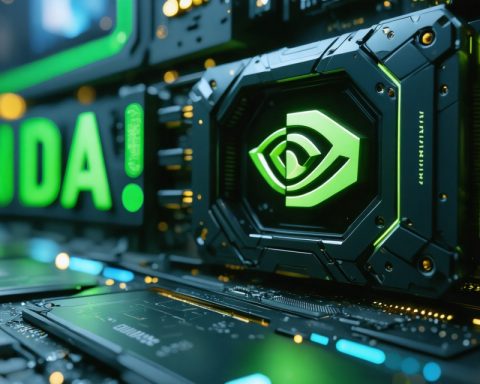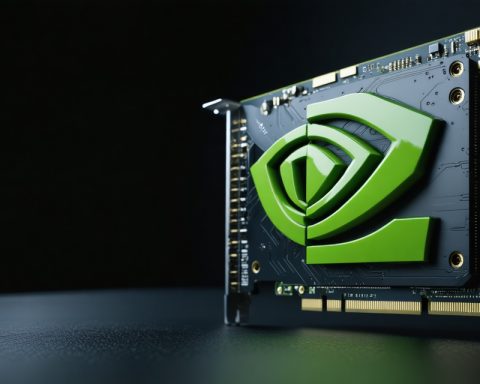Google is making strides to enhance the Android ecosystem by developing a new Terminal app aimed at running Linux applications. This innovative app can be accessed through developer options, enabling the installation of a Debian virtual machine directly on Android devices. While this feature primarily targets Chromebooks, it is anticipated that mobile devices will also gain access.
Despite the growing capabilities of web browsers, certain Linux applications remain essential for specific tasks. Currently, users can run Linux apps on Chromebooks, a key feature for developers who rely on these programs. Historically, methods for running Linux on Android have proven to be limited and unofficial. Fortunately, Google is addressing this gap with a structured approach by integrating a Terminal app into Android through its Android Virtualization Framework (AVF).
The app’s functionality is expanding. Initially, users had to perform manual setup; however, recent updates indicate that Google aims to streamline this process by merging functionalities into the Terminal app itself. As a result, users can expect an all-in-one application capable of managing Debian installation effortlessly.
Furthermore, the development team is refining both the Terminal app and AVF. Enhancements will likely include backup options and improved settings for performance optimization, indicating a significant leap towards making Android a more robust platform for developers. This upcoming feature will potentially revolutionize the way users interact with Linux applications on their Android devices, paving the way for broader adoption.
Google Enhances Android with New Terminal App to Simplify Linux Integration
In a bid to further enrich the Android ecosystem and support developers, Google has unveiled an innovative Terminal app that facilitates the seamless integration of Linux applications on Android devices. While previous methods to run Linux on Android were often limited and unofficial, this new initiative leverages the Android Virtualization Framework (AVF) to provide users with a structured and direct approach.
What prompted this development? With an increasing number of users turning to Linux applications for development and productivity, Google recognized the need for a more fluid experience on mobile devices. The app allows developers to run a Debian virtual machine, which is particularly beneficial for app developers and professionals who require specific Linux environments for their workflows.
Key questions surrounding the new Terminal app:
1. How does the Terminal app improve upon existing solutions for running Linux on Android?
The Terminal app is designed to streamline the process of installing and managing Linux applications. Unlike previous ad-hoc solutions, it integrates more directly with the Android operating system, offering a more user-friendly experience.
2. Which devices will support this Terminal app?
While the primary focus might be on Chromebooks initially, Google aims to extend compatibility to a wide range of Android devices, enhancing the versatility of the app and expanding its user base.
3. What are the anticipated performance improvements?
Google is working on significant enhancements to both the Terminal app and AVF. These include advanced performance optimizations, such as improved resource management, which could lead to faster execution of Linux applications on mobile devices.
Challenges and controversies:
Despite the promising features of the new Terminal app, there are notable challenges. One major concern involves security; as users install Linux applications on their devices, there is potential for vulnerabilities if these apps are not monitored or secured properly. Additionally, the integration with existing Android security frameworks must be robust to prevent unauthorized access.
Another concern is the learning curve for users unfamiliar with Linux environments. While the app is designed to be more intuitive, there remains a segment of users who may find the transition daunting without adequate support and resources.
Advantages of Google’s Terminal app:
– Streamlined User Experience: The all-in-one application promises to simplify the installation and management of Linux applications, reducing the complexity users faced previously.
– Broader Functionality: Through the Debian virtual machine, users will have access to a wider array of software tools traditionally not available on mobile devices.
– Support for Developers: This development aligns with Google’s commitment to support developer needs, potentially increasing innovation within the Android ecosystem.
Disadvantages of the Terminal app:
– Resource Intensive: Running a full Linux environment on mobile devices may lead to increased resource consumption, impacting battery life and performance.
– Security Risks: The introduction of Linux applications into the Android space may pose security challenges that need to be carefully managed.
– User Adoption: The app may not attract users who are not familiar with Linux, limiting its potential audience.
In conclusion, Google’s introduction of the Terminal app marks a significant step towards bridging the gap between Android and Linux applications, providing a structured, user-friendly method for accessing powerful tools right from mobile devices.
For more information about Google’s updates, visit Google.









